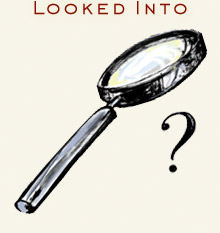Emdashes—Modern Times Between the Lines
The Basics:
About Emdashes | Email us
Ask the Librarians
Best of Emdashes: Hit Parade
A Web Comic: The Wavy Rule
Features & Columns:
Headline Shooter
On the Spot
Looked Into
Sempé Fi: Cover Art
Growing Up to Be Susan Sontag
Filed under: Looked Into Tagged: Benjamin Chambers, Susan Sontag, Thomas Mann

Benjamin Chambers writes:
Over at The Millions, Anne K. Yoder has a humorous review of the recently-published opening volume of Susan Sontag’s journals.
For those interested in Sontag’s early development, I highly recommend her memoir, “Pilgrimage” (published in the December 21, 1987 issue of The New Yorker and curiously classified in the magazine’s index as “fiction”). In it, she describes how she and a friend arranged to meet Thomas Mann at his home while she was still in high school.
She burned brightly, early.




Comments
One of the things that Sontag seems sour about in “On Photography,†is the very thing I like most about photography, namely, its Whitmanesque ability to confer value on even the humblest subjects, e.g., Steichen’s milk bottle on a tenement fire escape, Evan’s southern sharecroppers, Penn’s cigarette butts. “Photography,†she says, “is a kind of overstatement, a heroic copulation with the material world.†She goes on to complain about the “leveling of discriminations between the beautiful and the ugly, the important and the trivial†in Walker Evan’s work. At times, “On Photography†gives off an unpleasant whiff of snobbism. For me that’s about the only sin a great writer can be guilty of that I’m unable to forgive. I love art that spots the extraordinary in the ordinary. While we’re on this subject, I see the New York Time’s Charles McGrath has accused Cheever of being a snob (“Cheever could be a snob and a bit of a poseurâ€). I have to say that, if Cheever was a snob in his personal life, there is no evidence of it in his work that I can detect. This is the second time in about a month that McGrath has unfairly disparaged a great New Yorker writer. His preposterous statement about Updike – “Though a brilliant man, he was not a novelist of ideas†– in what purports to be a tribute, totally undermines his (McGrath’s) credibility as a critic. Rather than spotlight McGrath’s questionable take on Cheever, as Emdashes has done above, why not talk about a real critic’s view, to wit, John Updike’s review of the new Cheever biography in this week’s New Yorker?
@ driedchar - With regard to Sontag, I bow to your superior knowledge; what you say rings true to me.
But I don’t think McGrath “unfairly disparaged” Cheever. After all, McGrath is writing about Blake Bailey’s new biography, and there’s ample evidence already on record that Cheever certainly was a snob at times, although his work, as you say, doesn’t show it — in fact, positively works against it. I’ve not re-read McGrath’s piece, but I didn’t get the sense that he was interested in disparaging Cheever; the aim of the piece was to place Cheever’s work in the context of his life and he simply noted a contradiction between the man and his work.
Was Updike a novelist of ideas? That’s not a yardstick I use much to measure writers, and in any case, I know better than to argue that point with a true fan. But I just happened to read Updike’s review of Bailey’s biography this morning. Updike’s complaint about the biography is undoubtedly correct but seems to me, as I’d planned to say in my post (which I may or may not have time to write), to be a problem common to all literary biographies: with the exception of a few interesting details, such works are frequently tedious and inevitably fail to explain the miracle of the work. Comparing McGrath’s review with Updike’s, I’ll take the former, as I think it did a better job of talking about the pleasures of Cheever’s work. If I’d never read Cheever before and I read these two reviews, McGrath’s would send me to the work; Updike’s would not.